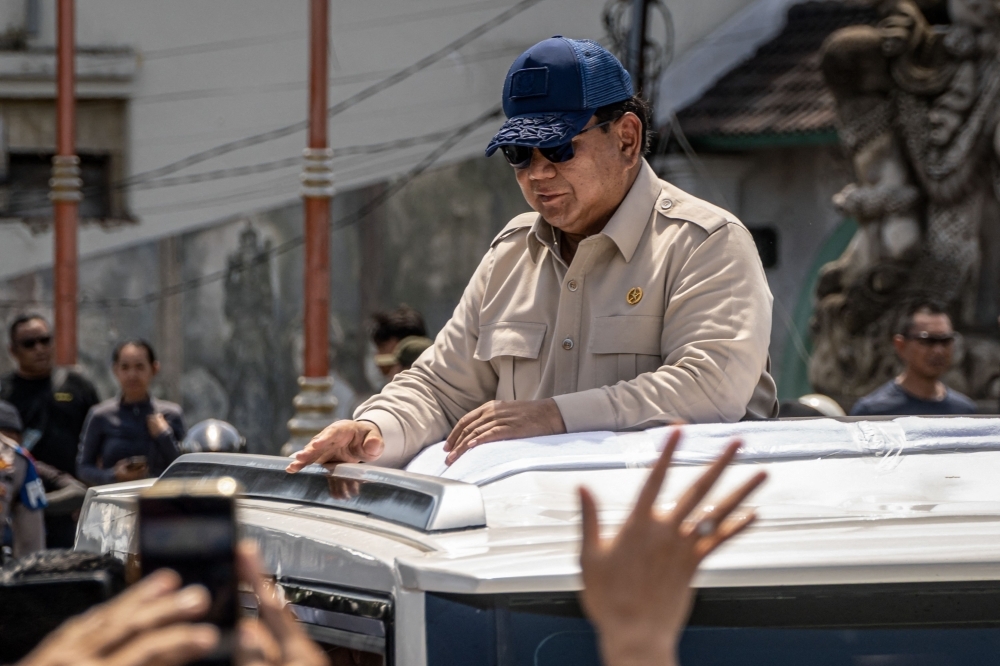JAKARTA, Sept 14 — Under the weight of deadly protests and mounting public anger, Indonesian President Prabowo Subianto has reshuffled his Cabinet, removed his finance minister, and reversed controversial decisions — a sweeping move many are calling either much-needed damage control or a strategic power grab.
What began as protests over low wages and rising unemployment erupted into national outrage after footage showed a paramilitary police vehicle running over 21-year-old delivery rider Affan Kurniawan. The violent protests that followed — Indonesia’s deadliest in years — left at least 10 people dead and hundreds detained, shaking confidence in the newly elected president’s leadership.
In a bid to regain control, Prabowo backpedaled on a controversial lawmaker housing allowance, promised action against the officers involved in Affan’s death, and ousted five key ministers — including highly respected Finance Minister Sri Mulyani Indrawati, who served under former president Joko Widodo (Jokowi) for eight years.
“This is a clear response to the wave of public anger over misdirected spending,” said Rani Septyarini of the Center of Economic and Law Studies.
Prabowo’s presidency has so far centered on flashy social programs, including a national free meal initiative and a sovereign wealth fund. But they come at the cost of deep budget cuts — a source of public frustration that has only intensified since February.
Now, his newly appointed finance minister, Purbaya Yudhi Sadewa, a relatively unknown figure but close to Prabowo’s allies, has pledged a massive $12 billion injection into the economy to ease tensions.
“He wants to prevent further social damage,” said political analyst Airlangga Pribadi Kusman.
Consolidating Power or Restoring Trust?
Although Prabowo won last year’s election by a landslide and enjoyed over 80% approval after his first 100 days, the recent turmoil may have dented his credibility.
The protests targeted not just policies, but the country’s entire political elite, with mobs looting politicians’ homes and torching government buildings.
While the Cabinet shake-up is being framed as reform, many analysts believe it signals a shift away from Jokowi’s legacy and toward a more centralized Prabowo administration. Most of the new appointees are either close allies or former military colleagues — a move that could consolidate control, but risks deepening public distrust.
“Prabowo is erasing Jokowi’s influence and installing his own power base,” said Virdika Rizky Utama of PARA Syndicate.
Replacing seasoned, internationally respected leaders like Sri Mulyani with lesser-known loyalists raises concerns. Purbaya, for instance, has praised Prabowo’s lofty economic goals of 8% annual growth as “achievable” — but many question if he has the chops to deliver.
Their competence, said Wasisto Raharjo Jati of the National Research and Innovation Agency, “still has to be proven.”
The public, meanwhile, continues to reel from stagnant wages, joblessness, and widening inequality. And while Prabowo’s policy reversals and calls for calm may have bought him time, the trust deficit remains deep.
“If the reforms are only cosmetic,” warned Rani, “the perception of injustice will worsen — and social pressure will explode again.”
A Nation at the Edge
Indonesia’s young democracy, emerging from decades of autocracy in the 1990s, is at a tipping point. Prabowo, once the son-in-law of the late dictator Suharto, must now prove he can lead with transparency, compassion, and courage — not just force.
“This is a test of leadership, of empathy, and of vision,” said Airlangga. “It’s no longer enough to manage optics. Real change is demanded.”
Because at the heart of the unrest is a simple human cry: to be heard, to be respected, and to live with dignity. If that call is ignored, the next protest won’t just be about a single tragedy — it could be about a broken promise of democracy itself.




